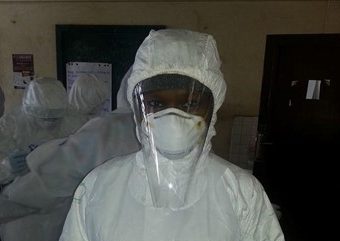
Health workers’ experiences of coping with the Ebola epidemic in Sierra Leone’s health system: a qualitative study
Dr Joanna Raven, Dr Haja Wurie and Professor Sophie Witter (BMC Health Services research (2018) 18:251 https://doi.org/10.1186/s12913-018-3072-3)
Abstract
Background:
The 2014 Ebola Virus Disease epidemic evolved in alarming ways in Sierra Leone, spreading to all districts. The country struggled to control it against a backdrop of a health system that was already over-burdened. Health workers play an important role during epidemics but there is limited research on how they cope during health epidemics in fragile states. This paper explores the challenges faced by health workers and their coping strategies during the Ebola outbreak in four districts– Bonthe, Kenema, Koinadugu and Western Area – of Sierra Leone.
Methods:
We used a qualitative study design: key informant interviews (n=19) with members of the District Health Management Teams and local councils, health facility managers and international partners; and in depth interviews with health workers (n=25) working in public health facilities and international health workers involved with the treatment of Ebola patients.
Results:
There were several important coping strategies including those that drew upon existing mechanisms: being sustained by religion, a sense of serving their country and community, and peer and family support. Externally derived strategies included: training which built health worker confidence in providing care; provision of equipment to do their job safely; a social media platform which helped health workers deal with challenges; workshops that provided ways to deal with the stigma associated with being a health worker; and the risk allowance, which motivated staff to work in facilities and provided an additional income source.
Conclusions:
Supportive supervision, peer support networks and better use of communication technology should be pursued, alongside a programme for rebuilding trusting relations with community structures. The challenge is building these mechanisms into routine systems, pre-empting shocks, rather than waiting to respond belatedly to crises.